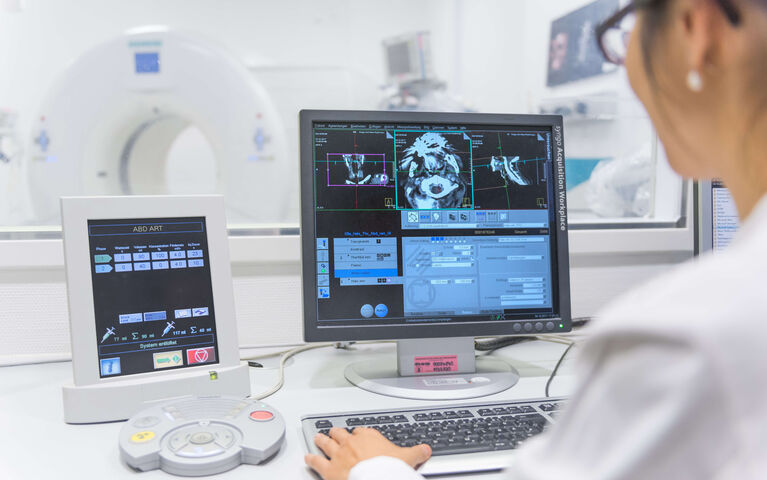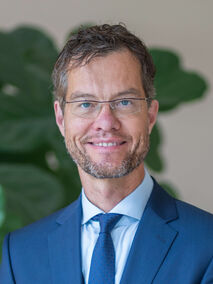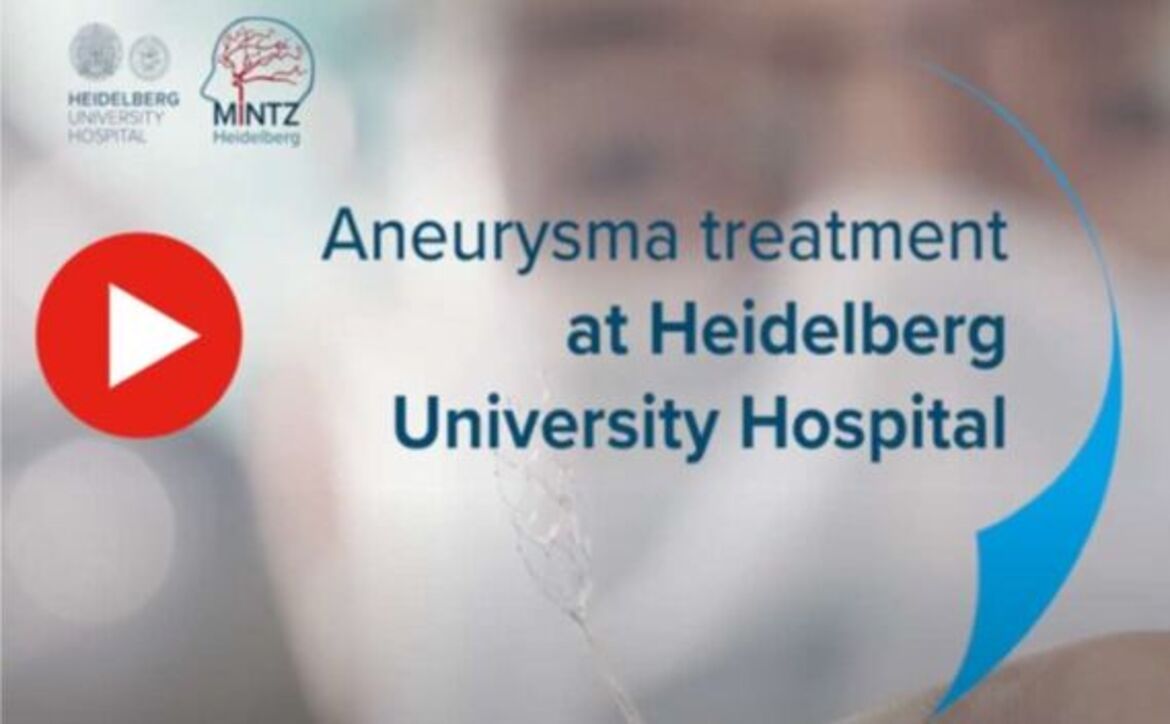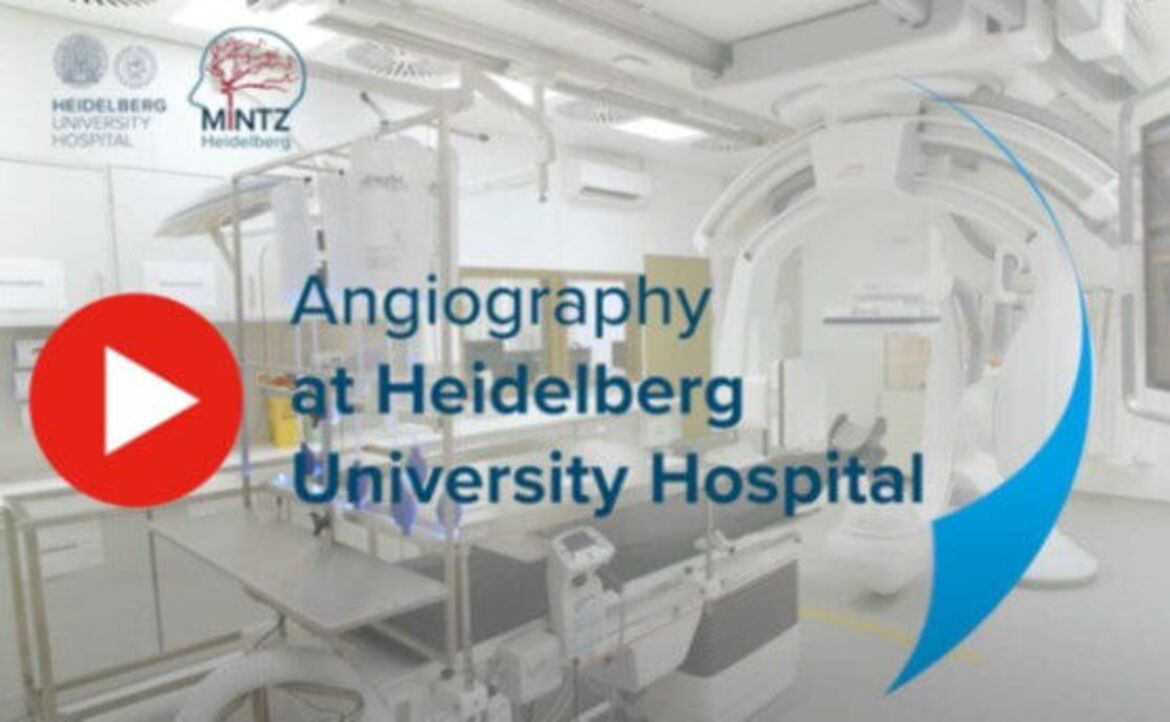Department of Neuroradiology at the Neurology Center
at Heidelberg University Hospital
Neuroradiology involves the diagnosis and treatment of diseases of the nervous system including the brain, the spinal cord, and peripheral nerves. The rapid development of techniques and methods in recent years has led to great advances in neuroradiology. For example, we can now use cross-sectional imaging to make high-resolution images of the structures of the nervous system in fine detail with computed tomography (CT) and magnetic resonance imaging (MRI) and also perform non-invasive examinations of nerve function and metabolism in the brain with MRI. These techniques are the basis of a precise diagnosis and are a prerequisite for the effective treatment of diseases of the nervous system.
We specialize in
- Magnetic resonance imaging (MRI)
- Computed tomography (CT)
- Angiography and endovascular therapy
Facts & Figures
In the Neuroradiology Department, our experienced team of specialists performs more than 25,000 cross-sectional scans (CT and MRI) every year. In addition, we offer innovative, minimally invasive treatment methods for pain therapy and for vascular diseases of the brain and spinal cord. Every year, we carry out more than 1,000 such examinations and procedures in our department.
Physicians and support staff speak English and can therefore respond to your individual situation. In addition to the examinations and treatment we undertake here, we also evaluate examinations and treatment that have been made elsewhere in order to advise you on additional treatment.
Aneurysma treatment & angiography
videos for your information
aneurysma treatment
Cerebrovascular diseases include aneurysms, for example. At Heidelberg University Hospital more than 2/3 of them are treated endovascularly.
In this video, Professor Möhlenbruch presents various endovascular treatment options for aneurysms and explains the process from patient consultation to hospital discharge.
angiography
Angiography is particularly necessary if there are suspicious findings in the CT or in the MRI, for example if an aneurysm is suspected. At Heidelberg University Hospital diagnostic angiography is performed more than 1000 times a year.
In this video, Professor Möhlenbruch explains in which cases diagnostic angiography is used and explains the procedure.
-

We would be pleased to assist you if you have any questions or suggestions.





